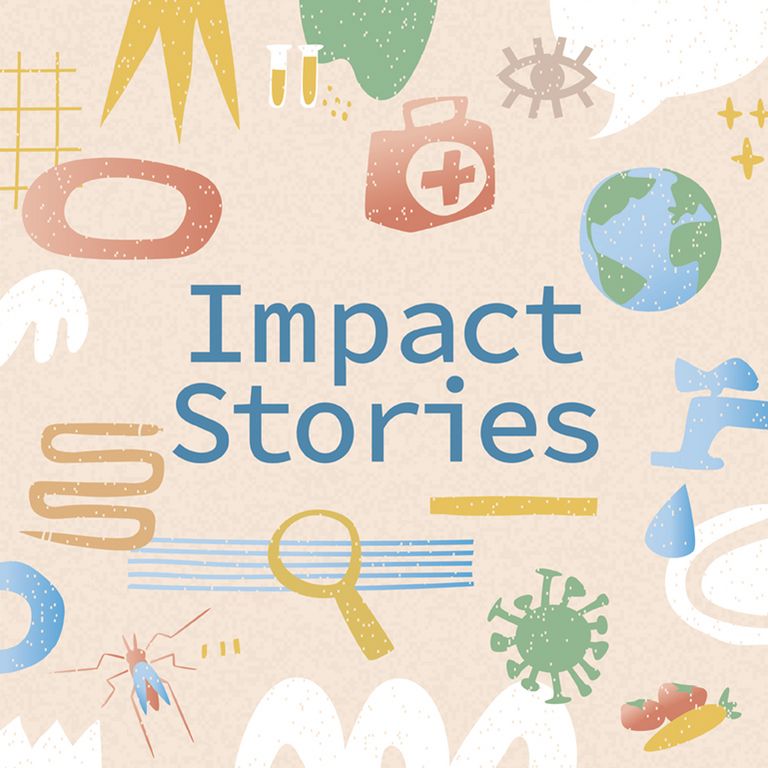

Swiss TPH is working in partnership with other organisations in Ukraine to address the public health challenges that have arisen in the wake of the country's ongoing conflict with Russia. The project, called Public Health System Recovery and Resilience (PHS R&R) under the lead of the international non-profit organisation Pact and funded by USAID, aims to strengthen the government's capacity to respond to public health shocks, sustain critical public health services during crises, and expand mental health support to war-affected populations.

Swiss TPH has a team of 8 people based in the Ukraine and contributes technical expertise in public health security, including disease prevention, infectious disease surveillance, and laboratory strengthening, as well as emergency preparedness and response. “All members of the Ukrainian team of Swiss TPH understand that they are an example and a calming tool for others. When staff from the Ministry of Health, Public Health Center and the Regional Center for Disease Control and Prevention (RCDCP) see how we plan meetings and events for a week, a month, a year, 5 years ahead, it instils faith in our future,” explained Oleg L. local coordinator for Swiss TPH. “No one in Ukraine gives up their plans for the future. If a missile attack prevents a meeting, we simply postpone the meeting, or conduct it from a bomb shelter.”
Restoring and sustaining public health functions
The project is active in eight of the 25 administrative regions of Ukraine. The project team is training epidemiologists to strengthen their skills in surveillance and response to food and waterborne disease outbreaks. Swiss TPH is also assessing laboratory services to support keeping them operational. “The 8 regions have been affected by the war in different ways. The northern and southern regions have a destroyed infrastructure and there is a shortage of public health specialists. The central and western regions host a large number of internally displaced persons. All these people need to be provided with housing, clothing, food, drinking water, and hygiene products. At the same time, these people need medical care, vaccination services, prevention of diseases that can spread due to overcrowding, lack of electricity and heating, and lack of hygiene,” explained Oleg L.
"We understand that we are an example and a calming tool for others."

Daily challenges in war times
“The project started as a public health strengthening project but with the beginning of the war the focus shifted to sustain and strengthen essential functions of public health, including work on regulatory aspects and risk communication," explained Oleg L. The daily work is very challenging. “Over the past year, we have learned how to work in shelters during attacks, to communicate when there is no mobile communication, to be powered by electricity from charging stations and gasoline generators, to be lit by rechargeable lanterns, and to keep warm when there is no centralised heating,“ he said.
“No one in Ukraine gives up their plans for the future. If a missile attack prevents a meeting, we simply postpone the meeting, or conduct it from a bomb shelter”
A rocket destroyed the apartment of our public health specialist Valentyna B. on December 31, a few hours before the New Year celebration. Valentyna survived the rocket attack and continued to work for the project. Colleagues living nearby arrived at Valentyna's house immediately after the alarm was cancelled to help,” explained Oleg L. “We have developed a plan for security measures and emergency communications and messages both within the Swiss TPH team and within the project.”
“The big challenge for all of us, and for me in particular, was to keep working and not stop,” said Maryana V., community health specialist in the local project team and she adds: “My personal challenges are to work even harder to preserve every person, every life, so that people feel the maximum of security at all levels. And it's about expanding both my personal knowledge and competencies and those of the people I work with.”
Success stories in the most adverse conditions
With the support of the PHS R&R project, mobile vaccination teams are continuing to operate and reach vulnerable populations because one of the problems is getting safely to vaccination sites. Starting in December 2022, medical staff of these mobile teams participated in training on how to safely administer antiviral vaccines and properly handle equipment for transporting and storing vaccines. In addition to vaccination against COVID-19, the mobile teams learned how to provide other basic health services that can be offered to patients, such as measuring blood pressure, testing for HIV, and referring to other medical services as needed.
The mobile teams were launched in January 2023. Within the first two weeks of the teams' work in just five regions, 349 people received a shot against COVID-19, of which 175 people were aged 60 years or more.
Support for vaccination against COVID-19 and routine vaccination remains an important part of the work. At the same time, organising the work of RCDCP rapid response teams, equipping laboratories with modern equipment, training staff, creating standard operating procedures are the challenges the local team is working on.
“When we come as a PHS R&R team to the regions, it inspires people to continue working. When they learn that we are an international project, they understand that we are not alone in our struggle,” said Oleg L. “With working in public health, we show that we are planning a peaceful and healthy future for all Ukrainians. We hear words of thanks in all the areas we visit. This inspires us not to stop, but to continue the work of building the public health system of Ukraine.”
